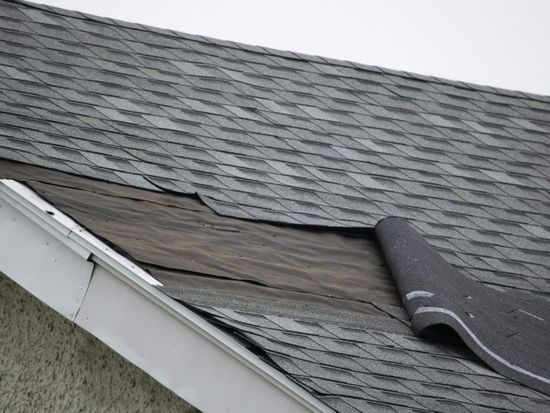The brilliant blog 6975
"Life is either a daring adventure or nothing at all."
Introduction
When it comes to home improvement, few projects are as daunting or essential as a roof replacement. After all, your roof is your home's first line of defense against the elements. Whether you're dealing with aging shingles, leaks, or storm damage, knowing how to prepare for a successful roof replacement project can save you time, money, and headaches down the line.
In this article, we’ll walk you through everything you need to know about preparing for a roof replacement: from understanding the types of roofing services available to choosing the best roofing contractors. We’ll also touch on what to expect during the project and how to maintain your new roof once it's installed.
Understanding Roof Replacement Services
What Are Roofing Services?
Roofing services encompass a range of activities related to the installation, maintenance, and repair of roofs. This includes residential roofing services aimed at homes and commercial roofing services designed for businesses.
Types of Roofing Services
- Roof Installation Services: These involve completely replacing an old roof with a brand-new one. Roof Repair Services: Focused on fixing existing issues such as leaks or damaged shingles. Emergency Roofing Services: Available when urgent repairs are needed due to unexpected damage. Roof Maintenance Services: Regular inspections and upkeep to prolong the life of your roof.
Understanding these categories helps homeowners identify which service they need based on their situation.
Why Do You Need Roof Replacement?
There are several reasons why homeowners might consider a roof replacement:
Age of the Roof: Most roofs last between 20-25 years depending on materials used. Damage from Storms: Wind damage roof repair or hail damage repair may not suffice if extensive damage has occurred. Increased Energy Efficiency Needs: Newer roofing materials offer better insulation and energy efficiency.Choosing Licensed and Certified Roofing Contractors
Why Hire Licensed Roofing Contractors?
Hiring licensed roofing contractors ensures that you're working with professionals who meet certain standards in both skill and compliance with local regulations. They have insurance that protects you from liability during accidents.
How to Find Best Roofing Contractors in Your Area?
Finding the best roofing contractors involves several steps:
Research Online: Check reviews on platforms like Yelp or Google. Ask for Recommendations: Speak with friends or family who have had similar work done. Get Multiple Estimates: Always obtain at least three quotes before making a decision.What Should You Ask Your Potential Roofing Contractor?
- Are you licensed and insured? What does your warranty cover? Can you provide references from past clients?
These questions will help ensure that you’re making an informed choice.

Assessing Your Current Roof Condition
How to Conduct a Roof Inspection?
Before replacing your roof, it’s crucial to assess its current state:
Look for visible signs of wear like missing shingles or sagging areas. Inspect interior spaces for water stains indicative of leaks. Consider hiring professional roof inspection services if you're unsure about what to look for.What is Included in Roof Inspection Services?
Professional inspectors typically check:
- Shingle integrity Flashing conditions Ventilation issues Structural problems
This comprehensive approach can prevent surprises during your replacement project.
Budgeting for Your Roof Replacement Project
Understanding Roof Replacement Cost Factors
The cost of a roof replacement can vary widely depending on several factors:
| Factor | Impact on Cost | |---------------------------|-----------------------| | Type of Material | Asphalt shingles vs metal | | Size of Roof | Larger roofs cost more | | Labor Costs | Varies by location | | Additional Repairs Needed | Hidden issues may arise |
By understanding these factors, homeowners can better budget for their project.
Getting an Accurate Roof Repair Estimate
To get an accurate estimate:
Have multiple contractors inspect your roof. Ask detailed questions about what the estimate covers—some may include removal costs while others do not. Compare estimates carefully; don’t just choose based on price—consider value too!Preparing Your Home for Roof Replacement
What Should You Do Before Work Begins?
Preparation is key! Here’s how to get ready:
Clear any external furniture or decorations that could be damaged by falling debris. Move vehicles away from the house; trucks will need access. Inform neighbors about potential noise during the project duration.Tips for Protecting Indoor Spaces
Consider covering items in your attic if you suspect vibrations might dislodge dust or debris during installation.
Managing Expectations During The Project
What Happens During A Roof Replacement?
Typically, here's what you'll experience:

Timeline Expectations
Most residential projects take anywhere from one day to two weeks depending on size and weather conditions.
Dealing with Unexpected Issues During Installation
Common Surprises That May Arise
Sometimes unforeseen issues pop up:
- Rotting wood underneath shingles Improper ventilation leading to moisture buildup
Being prepared mentally and financially can ease stress during these situations.
Post-Replacement Care: Maintaining Your New Roof
How Often Should You Schedule Inspections?
Regular maintenance is crucial! Ideally, schedule inspections every three years or after major storms.
Benefits of Routine Maintenance
Routine checks allow early detection of small problems before they escalate into costly repairs.
FAQs
1) How long does a typical roof replacement take?
The timeline varies but most replacements take between one week and ten days roofing services depending on size and weather conditions.
2) What types of materials are best for roofs?
Popular options include asphalt shingles, metal roofing, tile roofs, and slate; each offering different benefits regarding durability and style preferences.
3) Is it necessary to replace gutters when replacing the roof?
While not always necessary, it’s often recommended since old gutters may not align properly with new roofing systems.
4) Can I stay in my home during the replacement process?
Most homeowners remain at home but should expect noise; there might be limited access depending on work being done outside their windows.
5) What happens if it rains during installation?
Professional contractors usually have procedures in place; they’ll use tarps or temporary coverings until rain passes.
6) How do I file an insurance claim for storm damage?
Contact your insurance company as soon as possible—they’ll guide you through their process including documentation needed.
Conclusion
Replacing your roof doesn't have to be intimidating! By understanding how to prepare for a successful roof replacement project—from assessing condition and budgeting accurately through managing expectations—you set yourself up for success! With careful planning, choosing licensed contractors wisely—and maintaining open communication throughout—you'll enjoy peace-of-mind knowing you've made informed choices about protecting one of life's most significant investments: your home!
So gear up! You're now armed with knowledge that'll pave the way toward roofing success!
